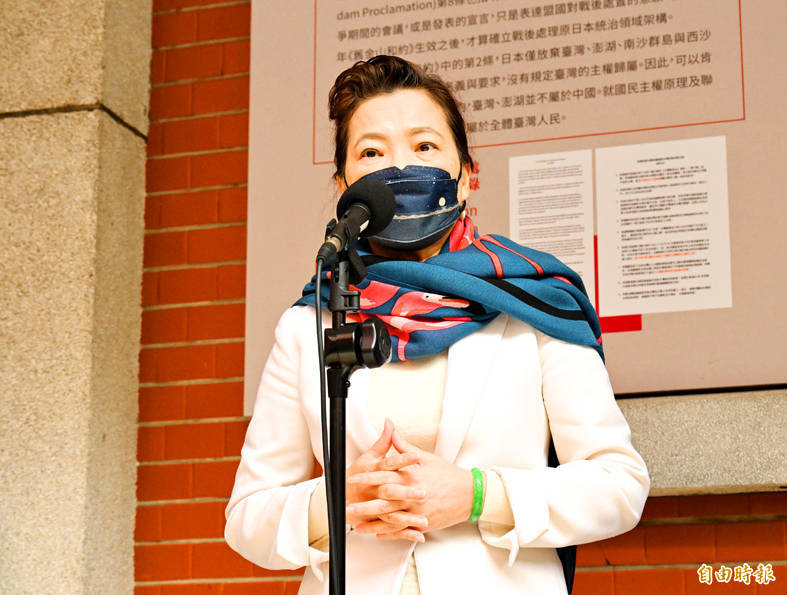《TAIPEI TIMES》 China’s imports ban to cost NT$1bn

Minister of Finance Su Jain-rong speaks at a meeting of the legislature’s Finance Committee in Taipei yesterday. Photo: Liao Chen-hui, Taipei Times
‘AMBUSH’: TTL said it had complied with new import system rules and its registration had showed as ‘valid’ in September, but it had no idea why it became invalid on Friday
/ Staff writer, with CNA
China’s suspension of some shipments of Taiwanese beer and liquor is expected to cost exporters no more than NT$1 billion (US$32.56 million), Minister of Finance Su Jain-rong (蘇建榮) said yesterday.
Taiwan sells about NT$3.7 billion in beer and liquor each year to China, and Beijing’s shipment suspension could initially lead to a loss of about NT$1 billion for affected companies, Su told a meeting of the legislature’s Finance Committee in Taipei.
China on Friday suspended imports of some Taiwanese beer, liquor and other beverage products, just two days after the Chinese General Administration of Customs banned imports of some Taiwanese seafood products, citing a failure to comply with a new customs registration system introduced last year, which went into effect on Jan. 1.
The ban on beer and liquor has affected many Taiwanese companies such as Taihu Brewing Ltd (臺虎精釀), Kinmen Kaoliang Liquor Inc (金門酒廠), King Car Food Industrial Co (金車), Legend Brewery Co (傳奇酒業), Win Shan International Co (雲山酒廠) and state-owned Taiwan Tobacco and Liquor Corp (TTL, 台灣菸酒).
Since January, the Cabinet has held several meetings to discuss the new Chinese customs registration system, and issued instructions to Taiwanese exporters on how to respond to it, Su said.
The Ministry of Finance told Taiwanese beer and liquor suppliers to abide by the new rules and provide all information requested when applying for a qualification code under the new registration system, he added.
“But it turned out that many of their applications were repeatedly turned down [by Chinese authorities], and they were asked to provide more information,” Su said. “What puzzled these applicants was that China never said why their applications were rejected.”
TTL said it adhered to Chinese customs regulations for registration and secured a qualification code in January, citing a notice from Chinese customs authorities.
It was later informed that its registration had become “invalid” and that it had to provide additional information, which it did, TTL said.
At the beginning of September, its registration was shown as “valid” on the Chinese customs agency’s Web site, it said, adding that it had no idea why its qualification code became invalid on Friday.
TTL said the suspension of shipments, including brewed and distilled items, would affect its imports for this month, and is expected to cost the company about NT$1.3 million
As Taiwan and China are WTO members, both sides should negotiate on trade issues, Su said.
Beijing’s use of non-trade barriers to harm Taiwanese exporters contravenes WTO rules, he added.
On the sidelines of the meeting, Minister of Economic Affairs Wang Mei-hua (王美花) told reporters that many countries have said the new Chinese customs registration system is unreasonable.
Even worse, the latest mechanism is biased against Taiwanese exporters, as Chinese authorities had asked that they provide more information to complete their registration about a year before similar requests were made of exporters from other countries, Wang said.
Wang said the move by China to ban Taiwan’s seafood, beer, liquor and other beverages was an “ambush” against Taiwanese exporters.
She said the government has launched a plan to promote Taiwanese food products in global markets, with about NT$1.7 billion in potential business opportunities available this year.
The initiative would continue next year to help Taiwanese suppliers diversify their sales destinations, she added.
新聞來源:TAIPEI TIMES

Minister of Economic Affairs Wang Mei-hua speaks to reporters at the Legislative Yuan in Taipei yesterday. Photo: Liao Chen-hui, Taipei Times













